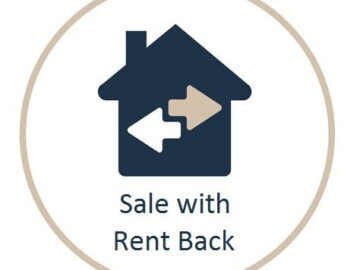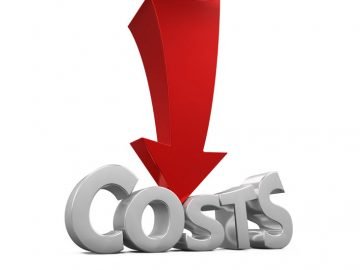Busting These 7 Home Buying Myths
Your Journey to Home Ownership
Buying a home can be one of the most confusing and stressful experiences, especially since you’ll be trying to get advice from all of the homeowners you know. While the past few years have been unpredictable for the real estate market, many new buyers are in the market for their first homes. This article will walk you through the top 7 home buying myths to make your journey to becoming a homeowner easier. Let’s get started.

1. You Need a 20% Down Payment
Perhaps one of the most common of the 7 home buying myths is that you must have 20% down to qualify for a home loan. Luckily, you don’t need that much money down, and you can get a house for much less down, with some loans offering a 0% down payment. Many homeowners put less than 20% down on their homes, and with many loans, that’s completely normal. For example, the FHA loan allows you to put down as little as 3.5%, while the VA loan will enable vets to put nothing down on their homes. You can also choose government home loans, which can help people in rural areas purchase a home.
If you’re not sure whether you’ll have 20% to put down on a home, do your research to determine which home loans are available for you based on your unique circumstances. Keep in mind, though, that the less you put down, the more you’ll pay monthly. Putting down less money also qualifies you for a lower loan, but it might still be enough to help you become a homeowner.

2. You Can’t Buy a Home if You Have Debt
Most Americans have some form of debt, including credit card debt and student loans. However, just because you have some amount of debt doesn’t mean you can’t own a home or qualify for a great mortgage loan. However, having debt can make getting a loan more difficult. Lenders look at your debt-to-income (DTI) ratio to ensure you can pay back the loan. Luckily, most lenders expect you to have some monthly debts, but it’s typically best to try to boost your credit score before you apply for a loan.
Many loans are available for people who have debt, including FHA and VA loans that aren’t as strict with their DTI and credit score requirements. However, it’s best practice to pay off as much debt as possible to boost your credit score before applying for a mortgage loan. With a higher credit score, you’ll get better terms to pay less over the life of the loan.

3. Only Banks Offer Home Loans
Many people choose to get their mortgage loan through their bank or credit union. However, banks are not the only option for getting a loan. Independent mortgage lenders may offer better terms and lower prices than your local bank. If you’re not sure what options are available in your area, try doing some research and ask around to find out where others got their loans.

4. 30-Year Loans Are Best
Many first-time homebuyers choose a conventional 30-year loan because it provides lower monthly payments, but you might also want to select a 15 or 20-year loan, all of which have their own benefits. A shorter loan term offers you a way to spend less money on interest and less over the life of your loan. Of course, you need to choose a plan that fits your budget. Shorter loans mean higher monthly payments, so it’s important to understand just how much you can afford.

5. Renting is Cheaper
While homeownership comes with higher upfront costs than renting, renting is actually more expensive in the long run. Rents rise over time, but fixed-rate mortgages don’t. Additionally, over time your house appreciates in value, which means you’ll be able to sell it for more than you bought it, allowing you to make money on your investment.
With an apartment, you can’t recoup any of the money you spend on rent, making renting more costly than buying in the long run. Of course, rent might be cheaper than a monthly mortgage payment, so do your research. If you don’t have enough money for a down payment, renting might be your best option until you can put more money down and reduce your monthly mortgage payment.

6. You Need Excellent Credit
One of the most important factors lenders consider when deciding whether or not to offer you a loan is your credit score. Luckily, you don’t need excellent credit to qualify for a home loan; you just shouldn’t have poor credit. That being said, the better your credit score, the better terms you’ll get on your loan, and the lower your mortgage rate will be. Even if you don’t have great credit, you may still qualify for a loan. Additionally, there are options for people with less-than-ideal credit scores designed to help anyone purchase their first home. Of course, each lender has its own criteria, so do your research before you apply for a loan.

7. The Buyer Always Pays Closing Costs
Most people assume that the buyer always pay the closing costs, but closing costs can be negotiated. Closing costs are an additional fee on top of the price of the home, which includes appraisal, lender fees, and legal fees. In most cases, the buyer will pay the closing costs, with the seller paying some of the fees. However, a buyer may also pay the entire cost themself. That being said, closing costs can be negotiated during the negotiation process. For example, you may be able to get the seller to pay a portion of the closing costs.
Final Thoughts
Buying your first house can be stressful if you don’t know where to start. If you have saved up money and are ready to start the process, start researching mortgage lenders in your area. From there, you can learn about the different loan options available to you based on your income, budget, and the lender’s criteria. Once you’re ready to start the qualification process, you can apply for mortgage pre-approval, which can help you easily negotiate with sellers.

Article Written By Matt Casadona
Matt Casadona has a Bachelor of Science in Business Administration, with a concentration in Marketing and a minor in Psychology. Matt is passionate about marketing and business strategy and enjoys San Diego life, traveling, and music.
Brought to You by OutFactors
This information is provided by OutFactors, a home cash buyer. At OutFactors, we buy houses as-is for cash and close quickly. To get a great cash offer on your home, you just need to enter your address< and answer a few simple questions about your house. The entire process only takes about 2 minutes, and personal information is NOT required. Yes, that is correct! No registration, no telephone number, no email address – not even your name.
If you get started now, 10 days later, you can be sitting at a table signing the closing documents and collecting the cash for your house. So get your cash offer now!
OutFactors
539 West Commerce Street
Suite 1205
Dallas, Texas 75208
Contact@OutFactors.com
(800) 420-7030
7 Home Buying Myths | First Time Home Buyer | OutFactors – Dallas Fort Worth, Texas




